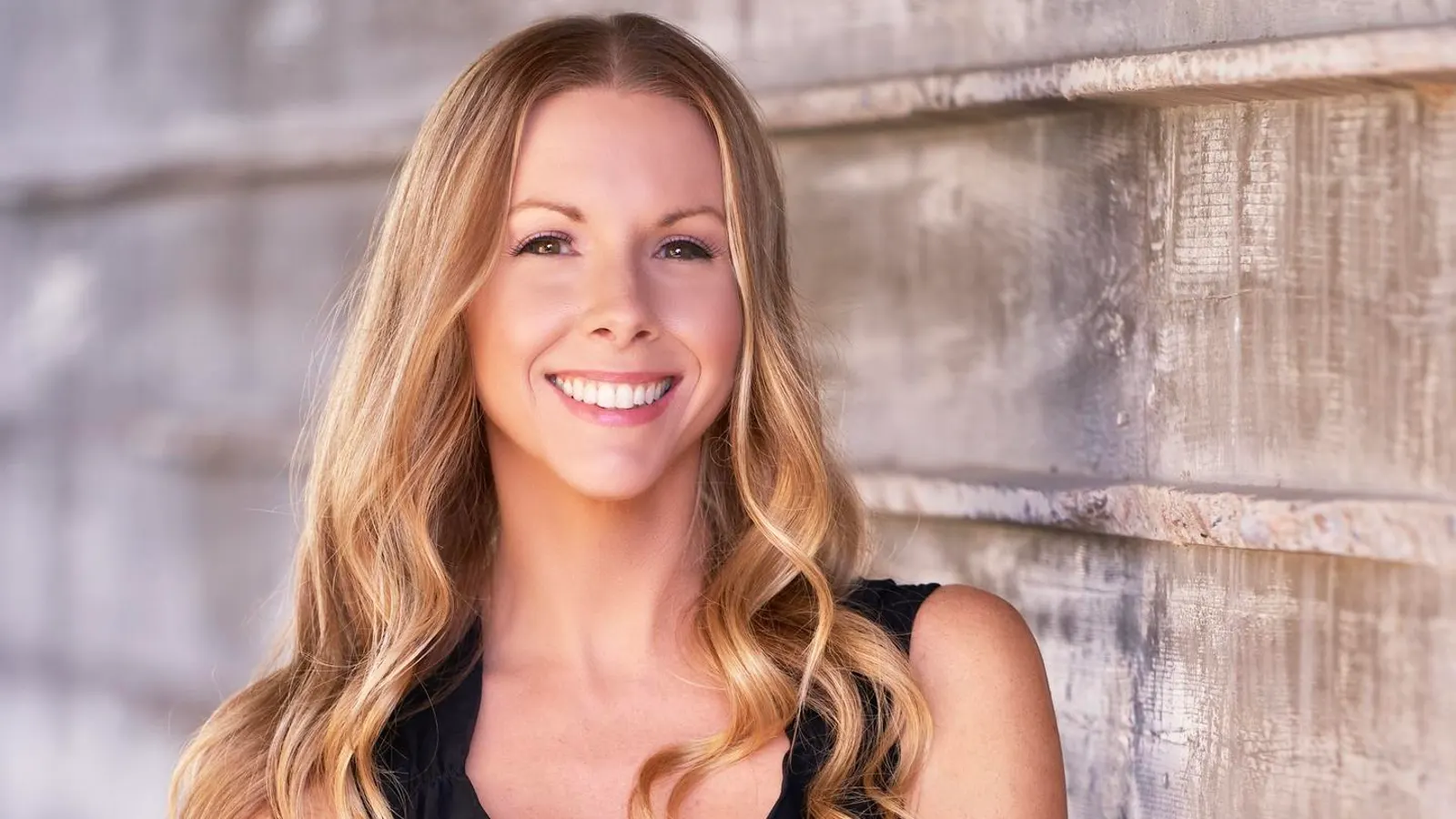Copyright Forbes

Women were taught that ambition was admirable, but only in moderation. That confidence was valuable, but only if it didn’t make others uncomfortable. Across boardrooms, classrooms, and living rooms, this message echoed in subtle but powerful ways: be capable, but not commanding; successful, but self-effacing; bold, but never too visible. This subtle programming created systemic pressure. These rules produced underrepresentation. Women drive the U.S. economy. They employ 9.4 million workers and generate $1.9 trillion in revenue. Leadership, historically defined by male archetypes of authority and control, has too often left women performing at full capacity while still feeling constrained by invisible ceilings. Finally, this story is changing. A new generation of founders, executives, and coaches are challenging the inherited scripts that told women to shrink themselves to fit into systems never designed for them. They’re not simply seeking equality; they’re redefining what leadership itself looks like: collaborative, emotionally intelligent, and unapologetically visible. “Playing small” is no longer a quiet act of humility; it’s a form of self-censorship that keeps innovation, creativity, and empathy from reaching the table. And as more women step forward to lead with clarity and confidence, the impact is both personal and systemic. When women take up space, entire organizations expand around them. The following stories explore what it looks like to unlearn smallness, not through slogans or surface-level empowerment, but through courage, systems, and everyday decisions that redefine power from the inside out. From Humility to Visibility MORE FOR YOU Meghan Clor spent much of her professional life helping others shine. As a strategist, she built campaigns that made brands, and the people behind them unforgettable. But she rarely applied that same energy to her own visibility. “I was the behind-the-scenes person who made everyone else shine,” she explains. “People called me indispensable, but what I didn’t realize was that I’d built my identity around being helpful, not visible.” Her story reflects a familiar pattern among women leaders: mistaking humility for invisibility. Research from Harvard Business Review finds that many women often choose to stay out of the spotlight at work, often out of fear of being perceived as self-promotional or arrogant. It’s a social conditioning that limits not just personal progress but collective potential. When Clor founded her own marketing agency, she began to see how deeply this pattern ran. Many of her clients were women who had left corporate careers to build businesses they loved, yet still struggled to claim their value. “They weren’t lacking expertise,” she says. “They were waiting for permission.” Her work now transforms that hesitation into leadership through visibility. One client, Kate Brooks, wanted to leave corporate life but feared being on camera. Clor challenged her to record one private clip. That single act sparked a shift; within weeks, she was posting confidently and receiving messages from women inspired by her story. Another client, Jennifer Hayes, compared herself to others, convinced her voice didn’t matter. Clor asked: “What if the coach who changed your life had thought the same thing?” Hayes shared her story and signed a new client within hours. For Kim Walker, the issue wasn’t fear but fatigue. She had reach but little conversion. Clor streamlined her offer and automated her funnel. Within two weeks, her calendar was fully booked. To Clor, these transformations aren’t about marketing; they’re about reclaiming space. “Playing small feels safe,” she says, “but it keeps the world from hearing the voices that would change it.” That belief extends far beyond business. Sci-Tech Today notes that in 2025, 42% of all businesses in the U.S. are owned by women, totaling about 12.9 million firms. While many women represent entrepreneurs, they remain underrepresented in leadership visibility. Clor sees this as the next frontier of women’s leadership: authenticity as authority. “When women learn to speak their value with confidence, they stop chasing credibility and start embodying it.” Leaving the Ladder, Building the Bridge After years of success in corporate leadership, Sarah Janzen realized she was chasing the wrong metrics of success. “I was checking all the boxes of what we're told success looks like, climbing the corporate ladder,” she recalls. “I started looking up the ladder and realized I didn’t actually want what was waiting at the top. The women above me were exhausted, burnt out, divorced, and paying for success with their health. That wasn’t the life I wanted.” Through her company, Her Big Leap, Janzen now helps women design businesses that align with who they are, not who they were told to be. Her clients are often high achievers confronting a quiet reckoning: they’ve checked every box of success yet feel unfulfilled, unseen, or trapped. One client, Priscilla McMahon, left her role as CHRO of a $500 million global firm when her company’s values conflicted with her own. She was exhausted, raising two young children, and unsure what came next. With Janzen’s guidance, she launched The Work-Life Group, an HR consulting practice that doubled her previous salary within a year, all while working school-hour days and being home for dinner each night. Then there’s Heather Gustafson, a 20-year real-estate veteran who longed to travel with her daughter while maintaining her income. Within weeks of leaving corporate life, she signed two major clients. By summer 2025 she was living in Paris for a month while her daughter attended ballet school while earning more than ever. These stories aren’t about escape; they’re about expansion. As Janzen puts it: “Women aren’t leaving work behind. They’re building new models of leadership that let them thrive without compromise.” This message reflects a broader trend. According to the 2025 Impact of Women-Owned Businesses Report from Wells Fargo, women-led companies generating over $1 million in revenue contributed approximately $2.2 trillion to the U.S. economy in 2024 and employed 9.4 million people. It’s not enough, however, to simply count women business owners. The deeper shift lies in rethinking what leadership and success mean in the first place. When women redefine success on their own terms, shaping a business around their lives, values and impact, they model a different kind of power. This kind of power doesn’t require permission, approval or conformity. “Women are expanding what’s possible for the next generation. When a woman lets go of an inherited script of lesser ambition,” says Janzen. “She not only repositions herself, but she changes the expectations of what leadership looks like. The ceiling doesn’t vanish because someone breaks through, it starts cracking because enough people stop pretending they belong under it.” From Survival to Significance For many women, the journey toward leadership begins not with ambition but with awakening. For Andrea Lynn, that awakening came after surviving multiple near-death experiences that redefined her idea of success. “I thought surviving was enough,” she reflects. “But gratitude without growth became its own kind of prison.” That realization became the foundation for Wake Up Your Soul, her coaching practice and podcast helping individuals move beyond survival into full expression. Andrea’s philosophy is simple yet radical: survival is not the same as living. “Playing small,” she says, “can be its own kind of slow death, when you silence your gifts, your voice, and your potential.” Her clients’ transformations show how inner healing fuels outer change. Danielle T., once lost in the aftermath of a difficult marriage, came to Andrea feeling “invisible.” Through mindset reprogramming and emotional empowerment, she rebuilt her independence, left the relationship, and created a life defined by self-respect rather than fear. Natalie C., another client, arrived with what seemed like a simple fear of flying. Beneath it lay generational trauma tied to safety and control. Through visualization and guided mindset work, she shifted her perspective from “What if something goes wrong?” to “What if everything goes right?” Today, she travels freely, describing herself as “lighter, freer, and more alive than ever.” For Andrea and the women she mentors, survival was never the end of the story, it was the threshold. Her work reframes leadership as connection rather than control, presence rather than perfection. Breaking the pattern of playing small means transforming fear into freedom and survival into purpose. As more women cross that threshold, leadership becomes not just something they hold but something they embody by turning recovery into resilience, and resilience into change. Building Confidence Through Financial Strategy Breaking the pattern of playing small isn’t only a women’s movement, it also depends on men who help redefine what leadership and confidence look like. Arjun Dhingra, a two-time Taekwondo world champion and veteran mortgage advisor, has built his career around one mission: helping clients approach financial decisions with the same preparation, mindset, and discipline that drive athletic success. This approach has been featured on the TV show he hosts, The American Dream. “Success isn’t an accident; it’s a framework,” says Dhingra. That philosophy has guided countless clients through intimidating financial moments, particularly women facing major transitions. His process strips away jargon and intimidation, replacing them with clarity, creativity, and control. Dhingra shared the story of Dolores Walters, a newly single mother facing the fallout of a difficult divorce. Traditional lenders advised her to sell her home, a move that would have uprooted her children and added more stress to an already painful situation. Instead, Dhingra crafted a creative financing solution that allowed her to keep her home and stability. “It was a huge win for her,” he reflects, “and a reminder of why I love what I do.” He also spoke about Jennifer Brown, a new entrepreneur who had recently left a corporate job to start her own company. Without tax returns or long-term financials, most lenders saw her as ineligible. Dhingra saw opportunity. By using her business bank deposits as qualifying income, he secured her a loan that let her buy a home years sooner than expected. “That’s what financial empowerment looks like,” he explains. “It’s not about shortcuts, it’s about strategy.” In a financial landscape where women are increasingly homeowners, a 2024 analysis by LendingTree found that single women own about 2.71 million more homes than single men, and are more likely to own homes in 47 out of 50 U.S. states. Yet many still face steeper barriers to financial access and confidence. Arjun’s work shows what happens when those barriers are met with informed, empowered decisions. The women he’s helped exemplify what’s possible when the pattern of playing small is replaced with ownership and self-trust. Leadership Without Permission These founders and coaches are rewriting the old equation of success, one that demanded perfection, modesty, and self-sacrifice, and replacing it with alignment, visibility, and agency. The modern woman leader doesn’t shrink to fit old structures; she builds new ones. She collaborates without apologizing, scales without guilt, and redefines success as something sustainable and self-authored. Breaking the pattern of playing small is not a slogan, it’s a collective shift. And as more women step into roles where their voices and visions shape the future, leadership itself begins to look less like hierarchy and more like evolution.



